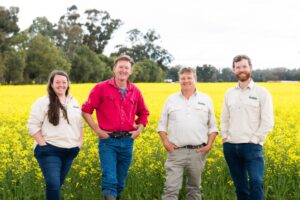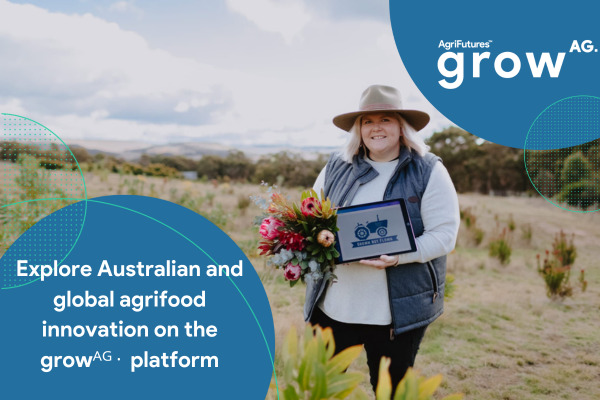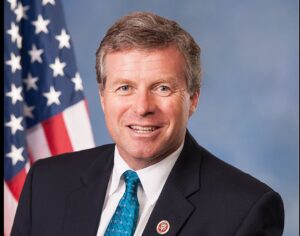It would be easy to see the first ever cannabis sponsor of the three-year-old Forbes AgTech Summit as a sign that legal, commercial cannabis has finally arrived. But Grupo Flor, the cannabis group in question, is stopping short of optimistic about the policy forecast for cannabis since President Trump’s election in November 2016.
The Salinas-based Grupo Flor is a cultivator, processor, and distributor of medical cannabis. Instead of focusing on one part of the supply chain, it is streamlining its operation through integrating private equity, real estate leasing, cultivation, manufacturing, distribution, equipment financing, and retail operations all under one umbrella in the hope of dominating the US market for cannabis in the future.
The same day Donald Trump was elected, Californians voted to legalize the recreational use of small amounts of cannabis for adults. The state has until January 2018 to put in place the regulatory structure to support a legal recreational industry. Grupo Flor claims to have 2.6 million square feet of properties dedicated to cannabis cultivation, state-of-the-art technology in extraction, and simplified irrigation and pesticide management systems in California.
We caught up with cofounders Omar Bitar and Gavin Kogan at Forbes AgTech to talk about a relevant bill signed by California governor Jerry Brown just this week, and how Grupo Flor is planning to succeed amid the mixed messages around legal status for cannabis at the national level. Bitar comes from real estate, while Kogan is a cannabis attorney.
What’s the reasoning behind your integrated approach to cannabis?
Omar Bitar: We need the whole supply chain to succeed so our thought was that we can’t just have cultivation as then we’re relying on the manufacturers. And we need to have distribution as well to distribute the product. So for us it’s more about building an ecosystem. That’s why we wanted to have everything integrated. We thought this was the only way it could work, by bringing costs down.
We, meaning Monterey County, have millions of square feet of greenhouse space being cultivated and all that product needs to be sold in order for the rents to be paid and for employees to be paid and for it to be successful. And all that product needs to be manufactured. Eighty percent of the products on the shelves are going to be marijuana-infused products such as edibles, topicals, and vape pens and all that is derived from the oil. One of our businesses is going to be white labelling, so we’re going to have kitchens so when brands come in we can manufacture to their specs. We have a tea brand that we’ve licensed in California — Mad Hatter Coffee and Tea — and eventually for our company, our goal is to be a national if not a worldwide brand, but that’s only if current laws change.
What is the latest news in cannabis policy in California?
Gavin Kogan: Yesterday [June 27, 2017] the governor signed an economic package, or a group of bills, called the “Trailer bill”. And it’s significant because this bill provided the framework for merging California’s medical cannabis industry with the new “adult-use” cannabis industry so that we have one solidified supply chain rather than two parallel supply chains. So, for example, if you go to Colorado, when you go into the shop, you can only buy cannabis that is medical on one side of the shop and cannabis that is recreational on the other side of the shop and they’re separated. So what this bill did was take the step to allow our farms to have co-location so we can grow adult-use and medical on the same farm, which makes sense particularly in things like tinctures and edibles, which require significant capital expenditures to create these facilities. It would be very clumsy to build duplicate facilities, one for medical and one for recreational.
Does that mitigate some of the financial hurdles in this industry?
Gavin Kogan: This is really important for the supply chain and allowing the supply chain to service both sides. They are still going to need to go through licensing, but it allows the cultivator to grow medical and recreational on one farm, on one set of books. There’s a perception that the industry is swimming in cash and doesn’t know what to do with all of its money. And the problem with that perspective is it’s probably more accurate for illegal actors, not for those that are trying to be up front. So those folks that are taking their money, trying to put it into capital expenditures, regulatory systems, hire employees, do all these things right — they’re not so flush.
How has the current administration affected your outlook on the future of your business?
Gavin Kogan: I believe that the current administration is not dumb or clumsy with their message on cannabis. I think it is designed to be confusing. I think the goal of the current administration at least currently under [Attorney General] Jeff Sessions is to shut down all cannabis and return us back to the 1930s when everything was fantastic! I think the overarching administration’s goal is to send out messages that are confusing for the purpose of retarding the growth of the industry. I think that the train has left the station and I think they recognize that.
One of the things that I’ve become really attuned to and learned from, is that Donald Trump is a master of using confusion to control, and I think that’s what he’s doing with cannabis.
Are there any steps you can take now in light of this?
Gavin Kogan: What I see in the cannabis industry is that it’s a political industry. So we’re already heavily militated in congress. More than half the states have medical marijuana. And while the federal government — even Trump’s administration — makes a distinction between recreational and medical marijuana, that’s not a distinction in the Controlled Substances Act. So what I meant by confusion is that they’re making a distinction that doesn’t exist within the law.
When you have people who are sworn to uphold the law of the United States saying that they’re in favor of medical marijuana, that’s a confusing statement because what they’re saying is that they’re willing to enforce the federal law in some areas, but not in other areas. And then you have Jeff Sessions saying ‘We’re just going to enforce the federal law across the board.’ That’s the confusion.
So who’s getting confused?
Gavin Kogan: I think it’s a failed tactic. I understand that they’re trying to confuse us, but the thing about my industry is it existed before there was law around it, so if they decide that they want to retard the growth of this industry, then the black market will just continue to proliferate. It has before and now it’s the same thing. If you overtax, over-regulate what we’re doing, that’s fine. We just won’t play in your sandbox. We’ve had our own sandbox for generations without all the laws, without taxation, without [the Occupational Safety and Health Association] OSHA, without paying workers compensation or insurance premiums. So what are you going to do to make it interesting for us to come out and be regulated? So it is a very interesting quagmire for politicians. They have to use more carrot and less stick for us to come out and participate in their new strategy of going from ban and imprison to tax and regulate.
















